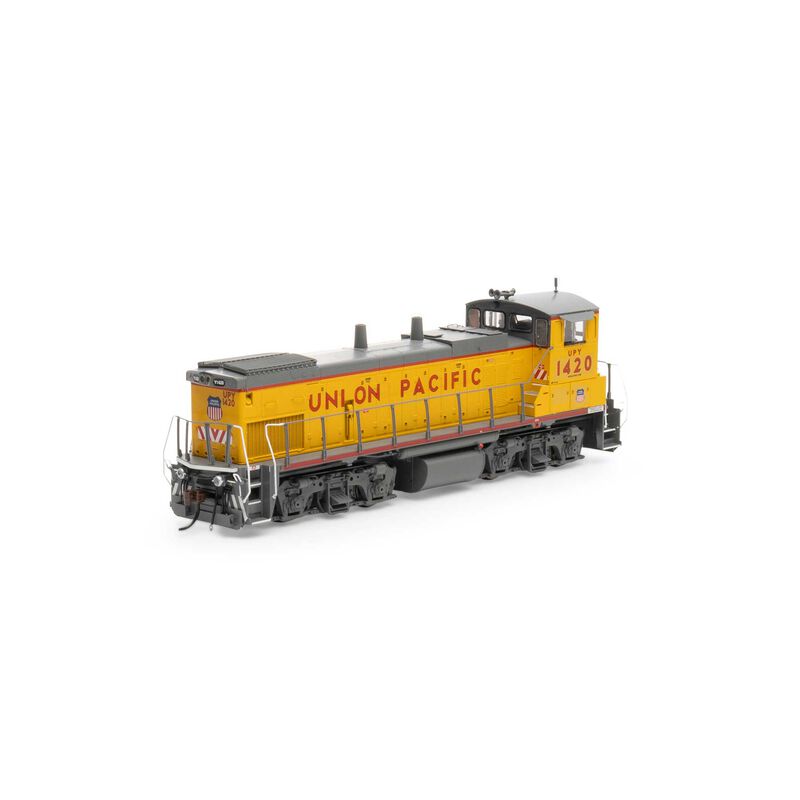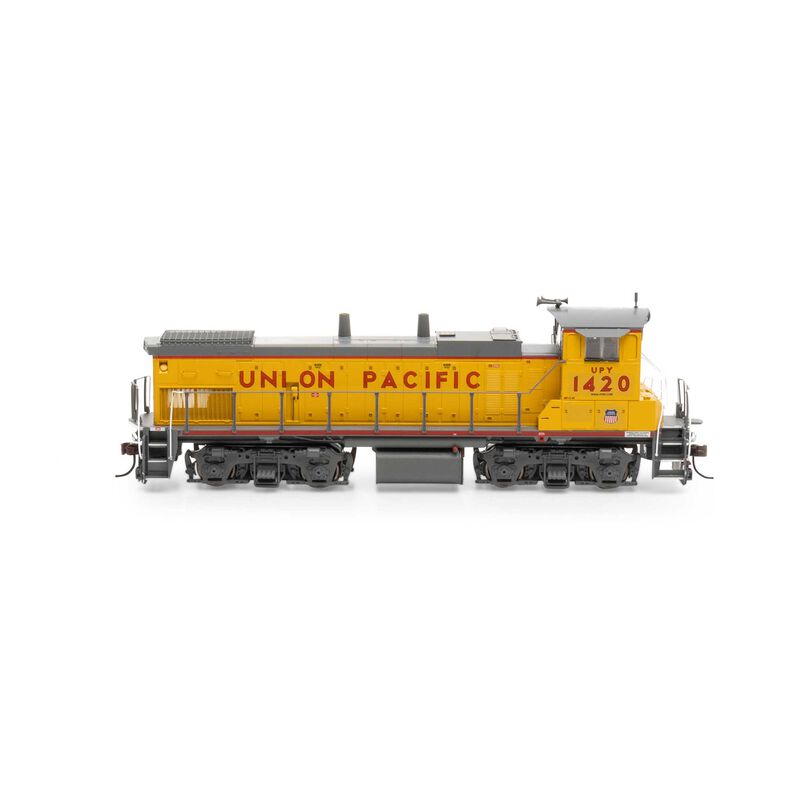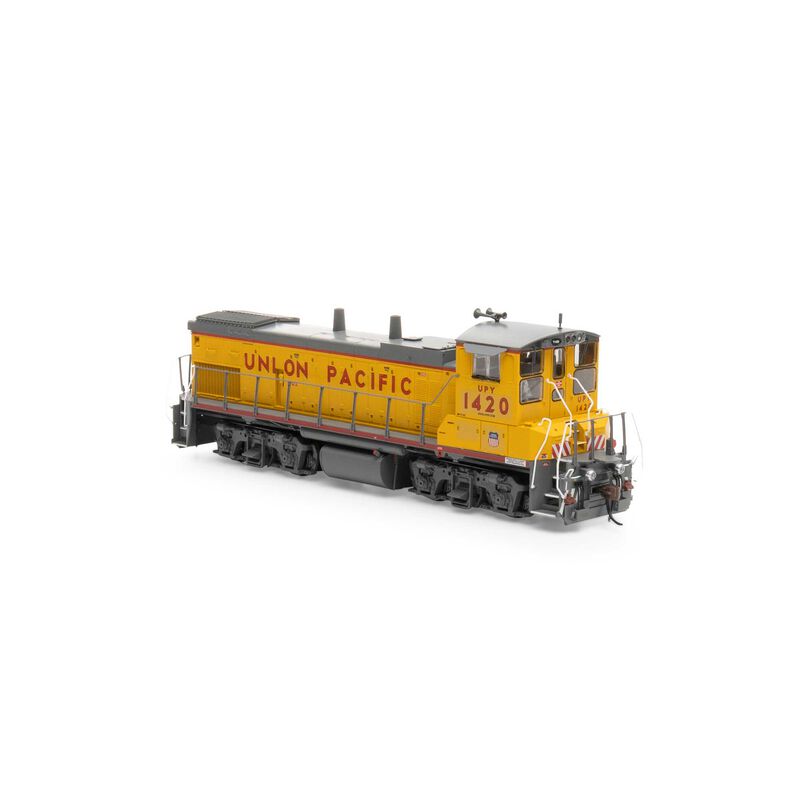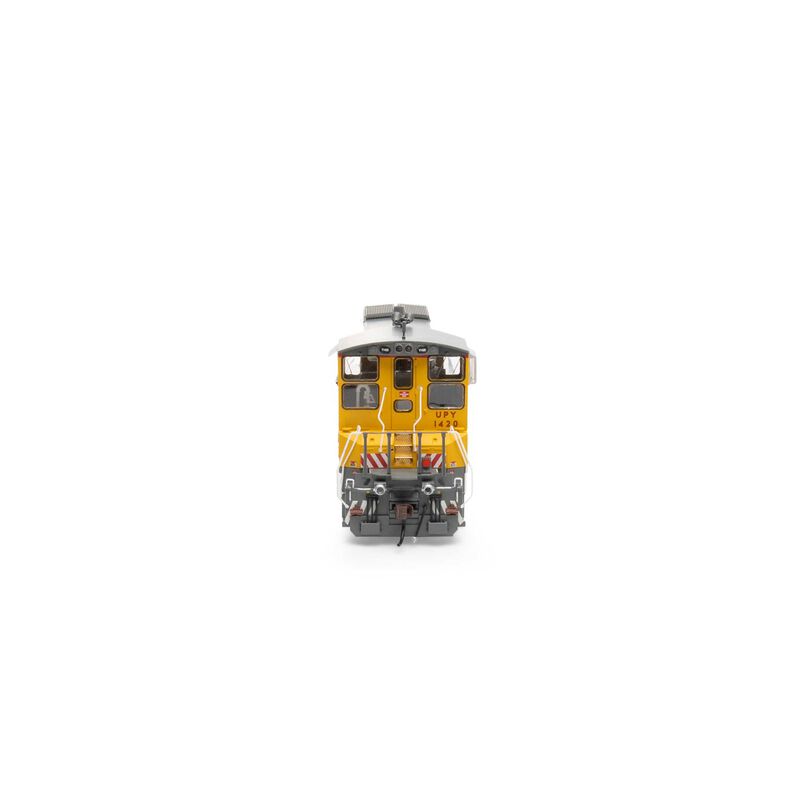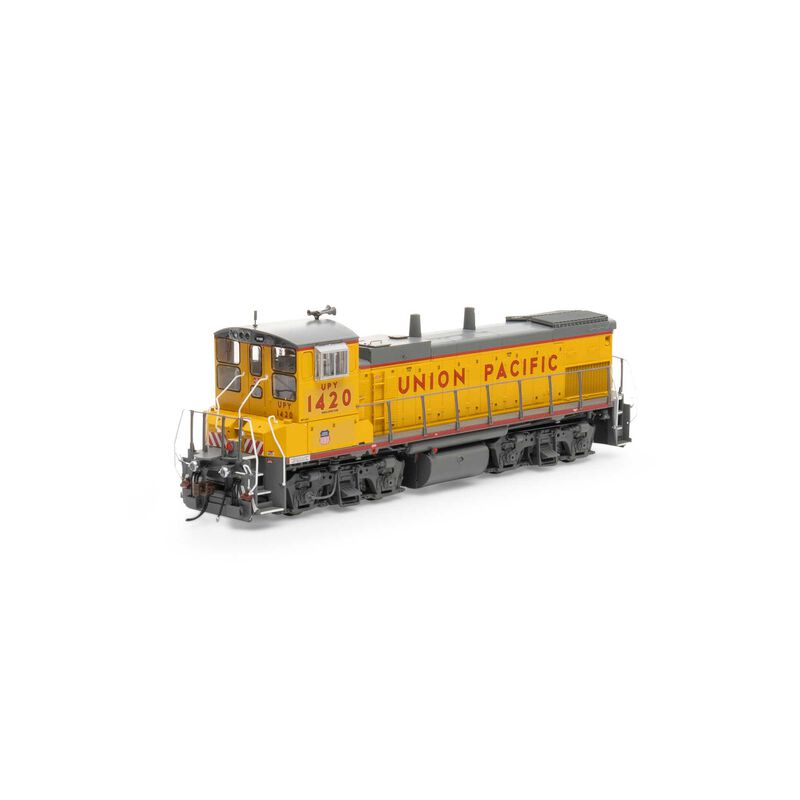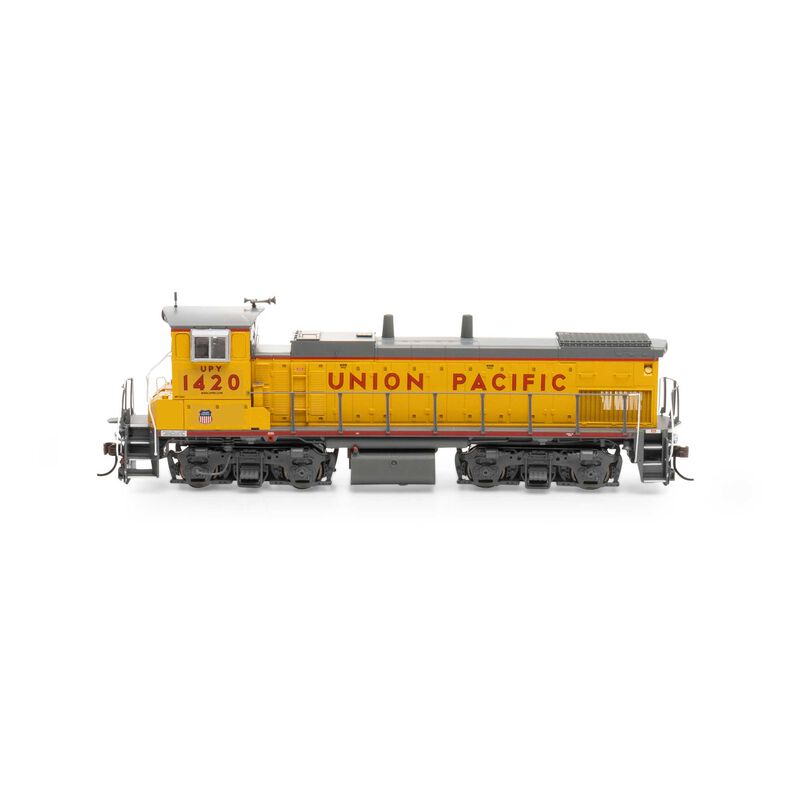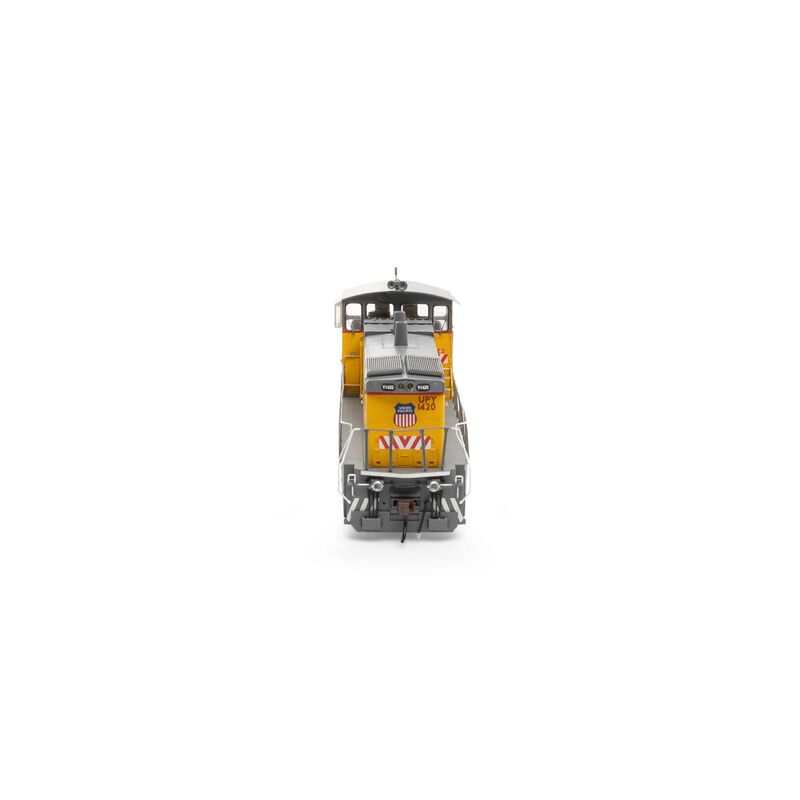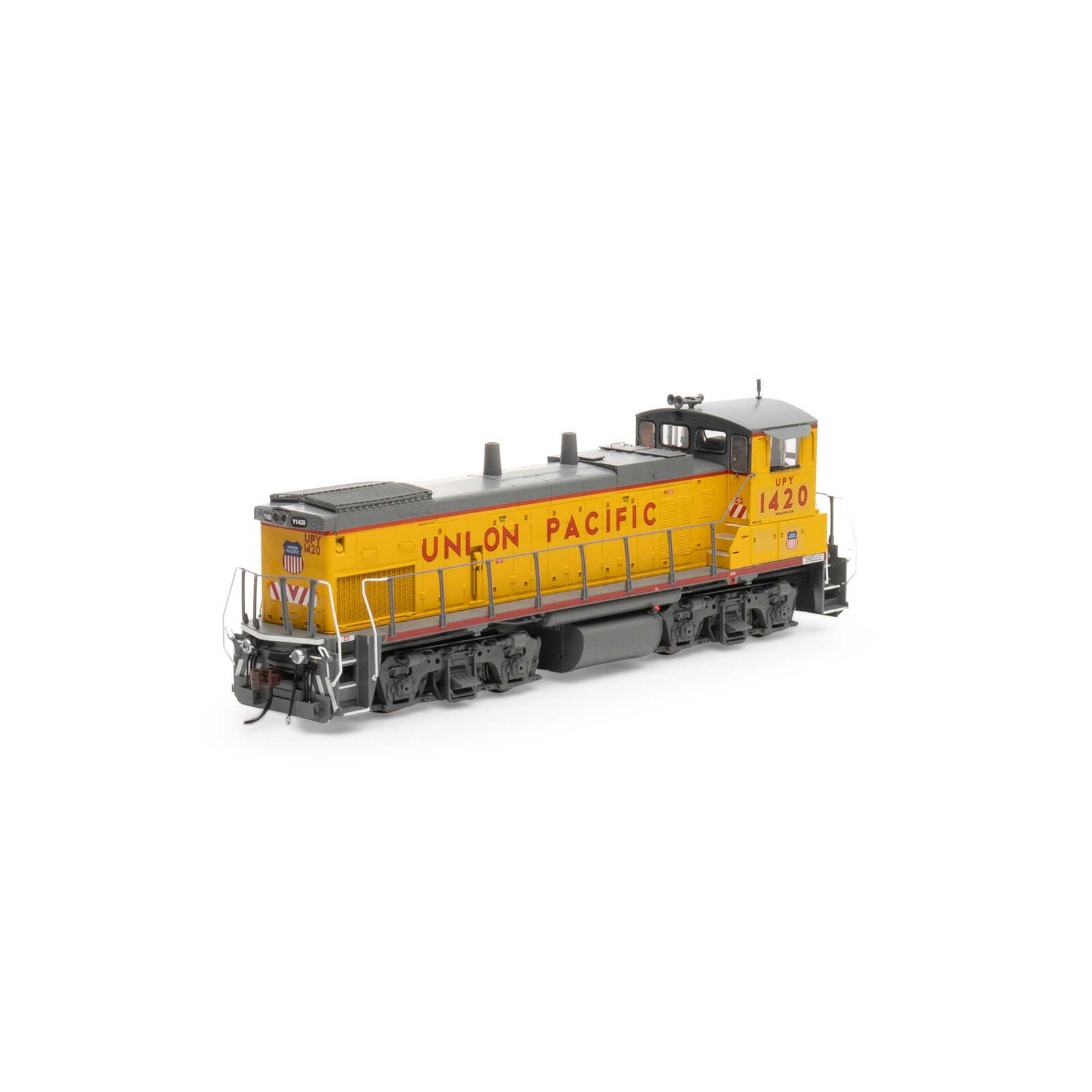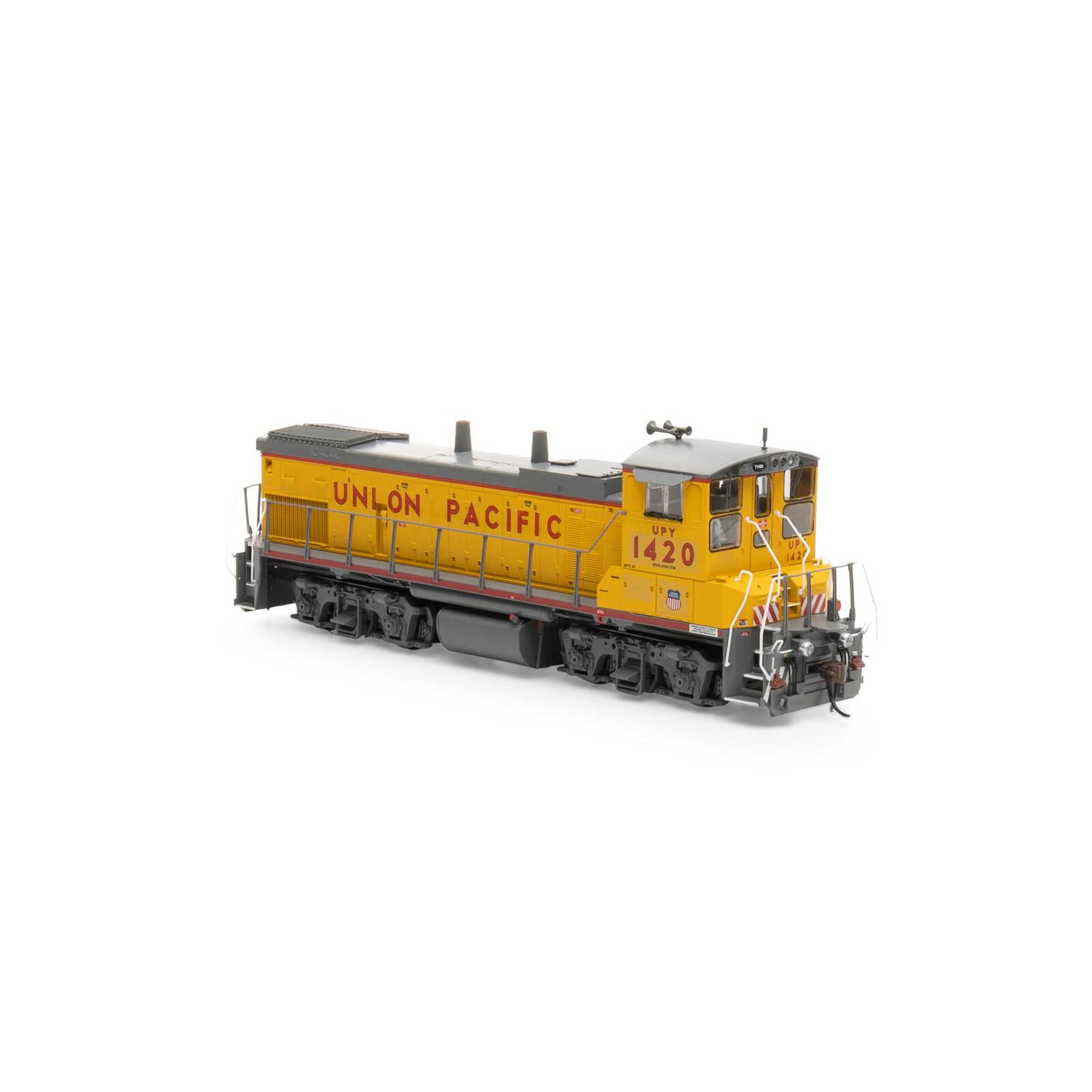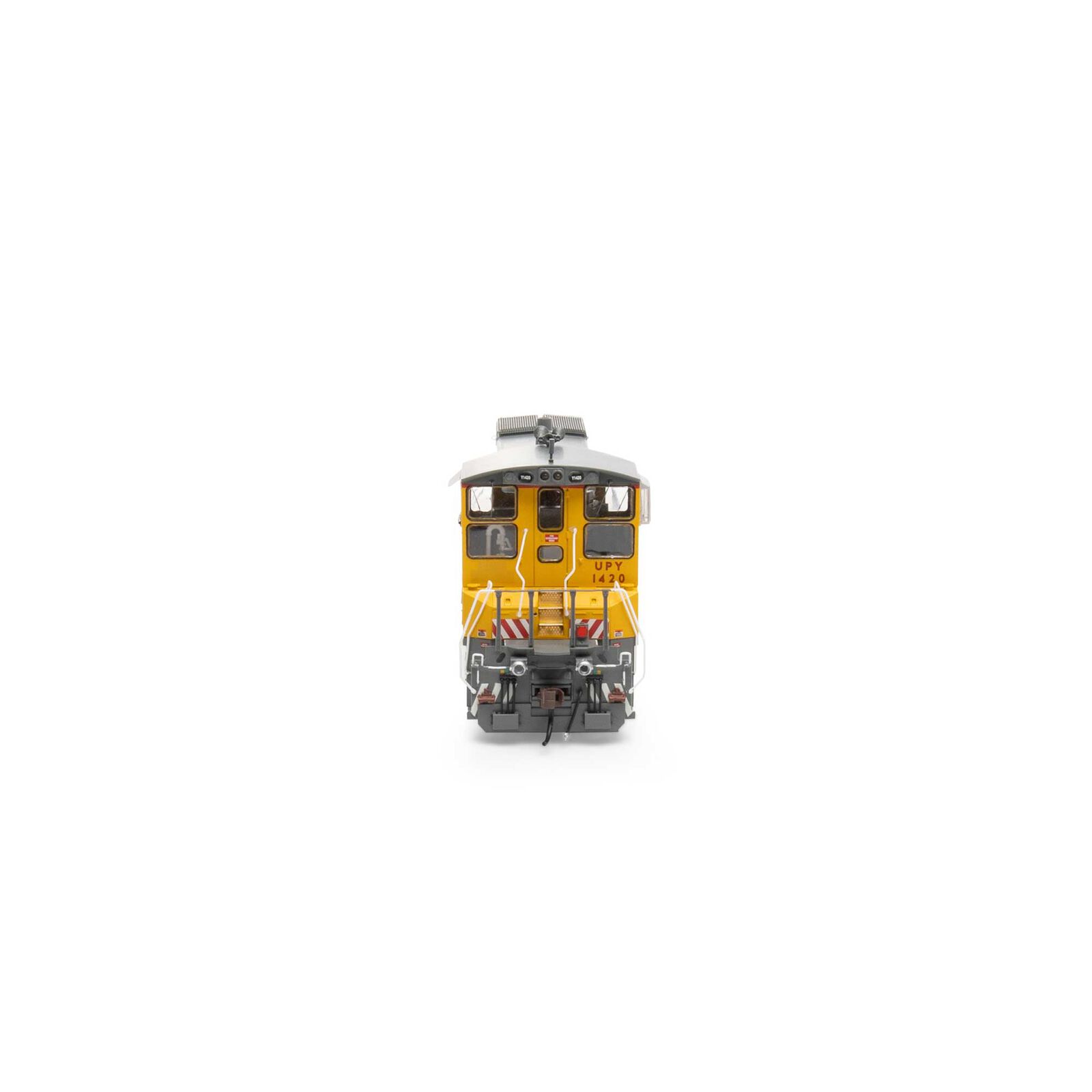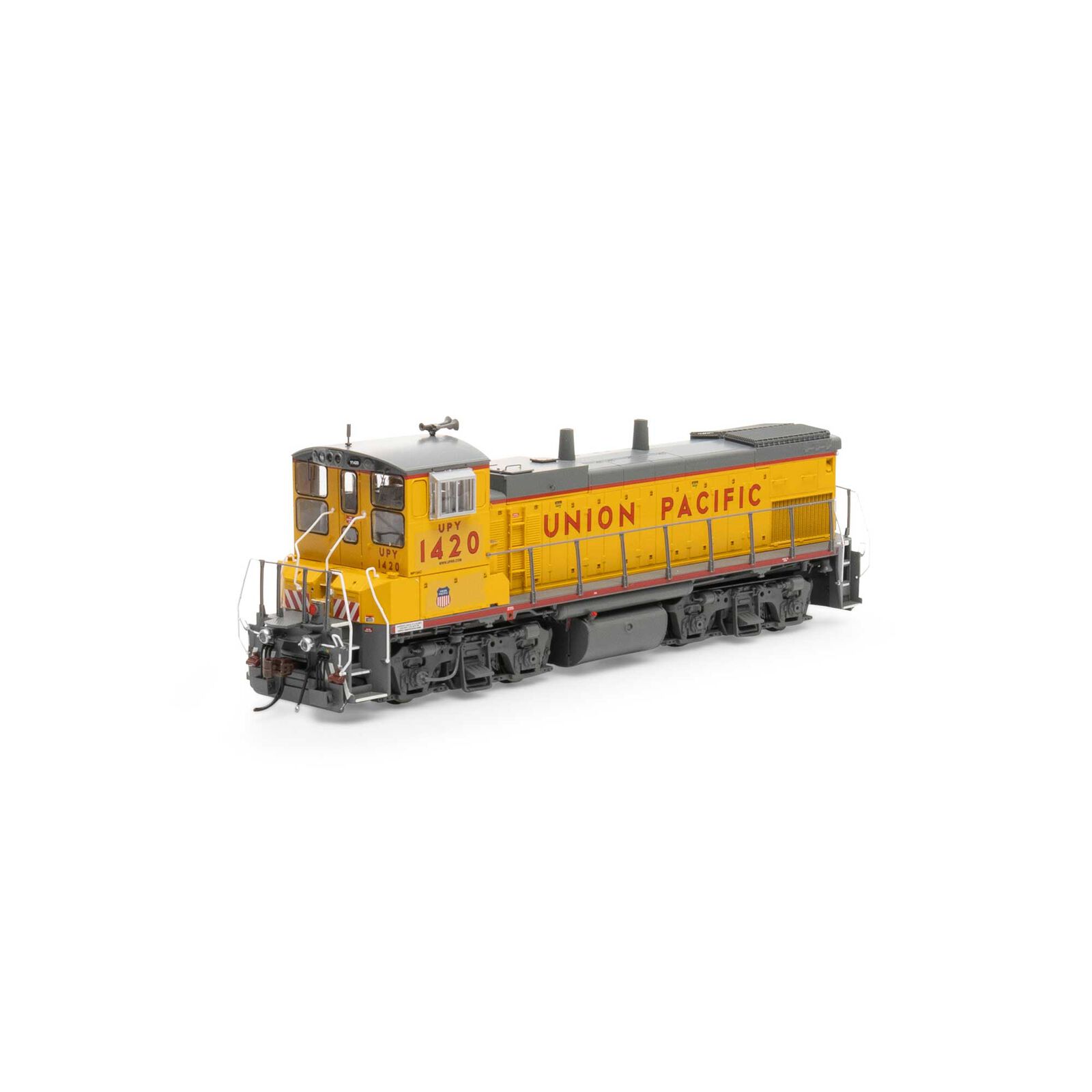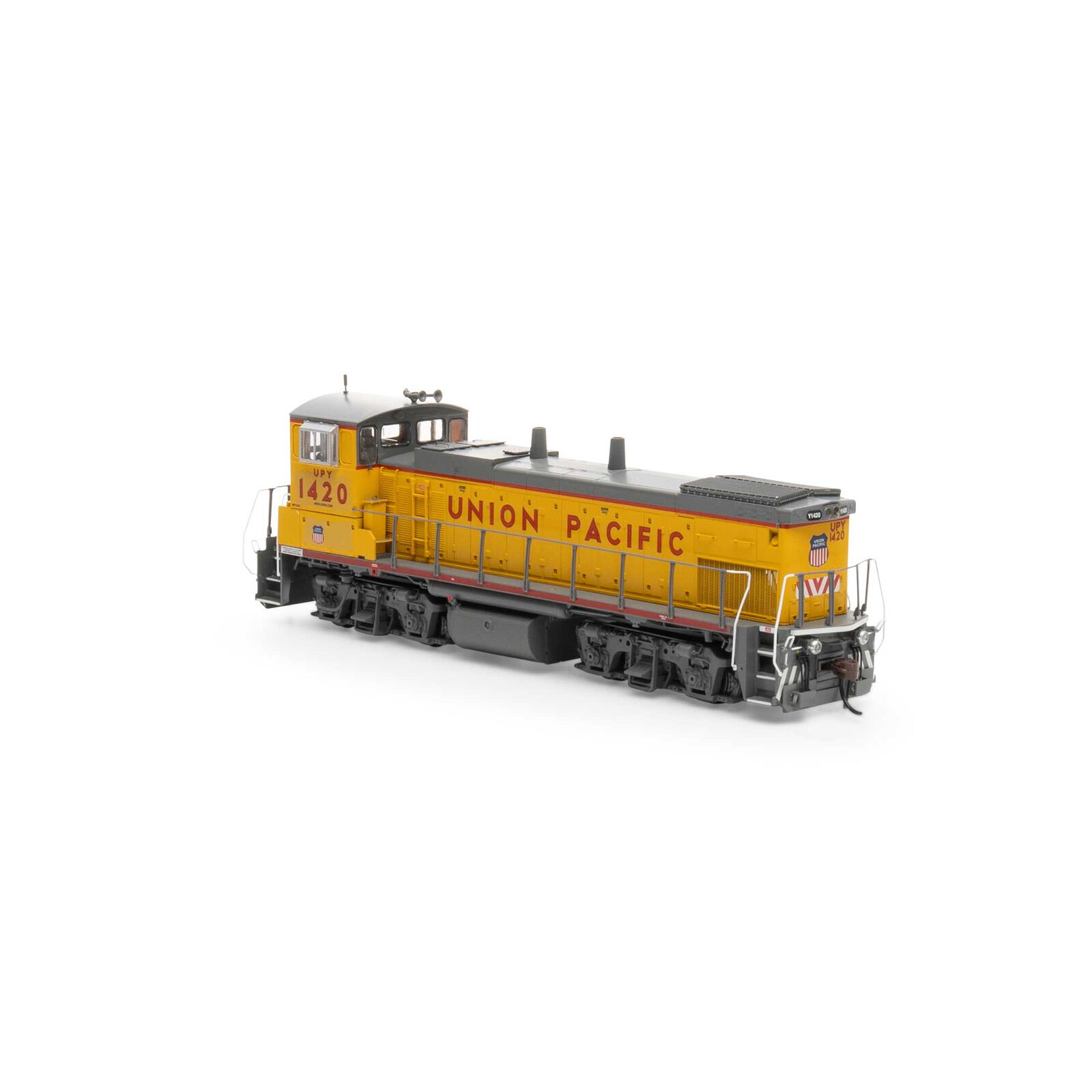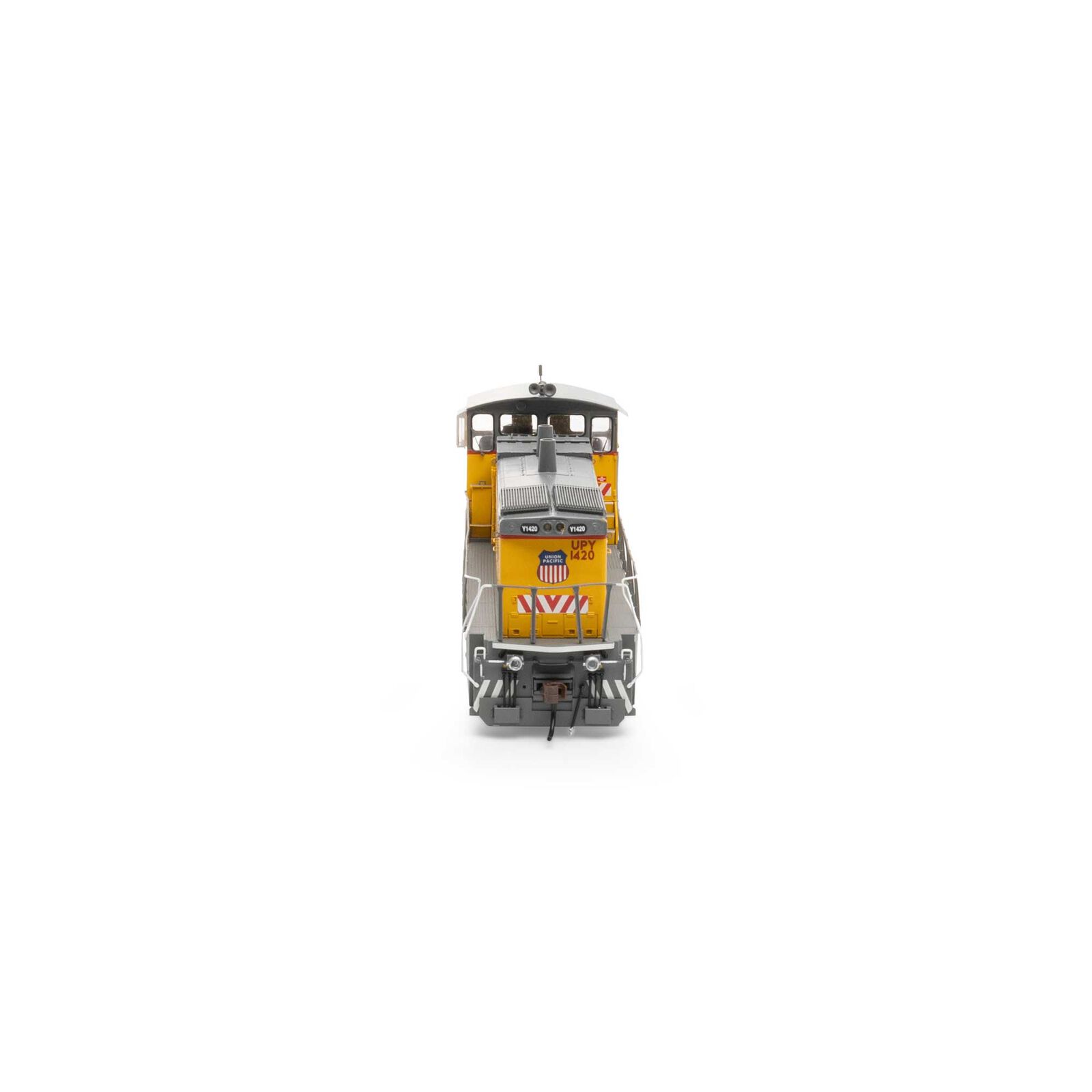HO MP15AC with DCC & Sound, UPY #1420
UPY FEATURES:
- Operating front and rear ditch lights
- Horn style per road number
- Firecracker antenna
This release depicts several of the former MILW MP15ACs that wound up on the Union Pacific. The "UPY" reporting mark denotes "Union Pacific Yard", and is used to avoid number conflicts with other UP units.
LOCOMOTIVE FEATURES:
- Full cab interior
- Wire grab irons
- Coupler cut levers
- See-through cab windows
- Flexible rubber trainline hose
- Flexible rubber MU hoses
- Windshield wipers
- Lift rings
- Blomberg-B trucks
- Sander lines
- Directional constant lighting
- Walkway Tread
- Fine-scale Celcon handrails for scale appearance
- Headlight brightness remains constant
- Separately applied photo-etched metal and injection molded detail parts
- Detailed fuel tank with fuel fillers, fuel gauges, breather pipes
- DCC-ready features Quick Plug™ plug-and-play technology with 21-pin NEM connector
- Accurately-painted and –printed paint schemes
- McHenry® scale knuckle couplers - Kadee® compatible
- Fully-assembled and ready-to-run
- Scaled from prototype resources including drawings, field measurements, photographs, and more
- Genesis driveline with 5-pole skew wound motor, precision machined flywheels, and multi-link drivetrain
- All-wheel drive with precision gears for smooth & quiet operation
- All-wheel electrical pickup provides reliable current flow
- Wheels with RP25 contours operate on all popular brands of track
- Heavy die-cast frame for greater traction and more pulling power
- Packaging securely holds model for safe storage
- Replacement parts available
- Minimum radius: 18"
NEW FEATURES:
- Operating ditch lights (if equipped)
- Operating ground lights
- Newly designed motor is more powerful and quieter than before
- DCC-ready models feature 21-pin plug
- DCC & sound models feature Tsunami2 sound with dual cube speakers
SOUND EQUIPPED MODELS ALSO FEATURE
- Onboard Tsunami2 DCC/Sound decoder
- Dual cube speakers for optimal sound quality
- Sound units operate in both DC and DCC
- Engine, horn, and bell sounds work in DC
- Some functions are limited in DC
- All functions NMRA compatible in DCC mode
- Excellent low-speed operation
- Operating lighting functions with F5 and/or F6 (Flashing ditch lights, beacon, etc)
- Program a multiple unit (MU) lashup with lead unit only horn, bell, and lights
- Many functions can be altered via Configuration Value (CV) changes
- CV chart included in the box
PROTOTYPE SPECIFIC INFORMATION
The EMD MP15 is a light road switcher that was built between 1974 and 1980. It came in two designs, the MP15DC and the MP15AC. It was billed as replacement for the EMD SW1500
The MP15DC's standard Blomberg B trucks were capable of transition and road speeds up to 60 mph (97 km/h), allowing use on road freights. Soon there was a demand for a model with an advanced AC drive system. The MP15AC replaced the MP15DC's DC generator with an alternator producing AC power which is converted to DC for the traction motors with a silicon rectifier. The MP15AC is 1.5 ft (457 mm) longer than an MP15DC, the extra space being needed for the rectifier equipment. The alternator-rectifier combination is more reliable than a generator, and this equipment became the standard for new diesel-electric locomotive designs.
The MP15AC is easily distinguished from the DC models. Instead of the front-mounted radiator intake and belt-driven fan used on all previous EMD switchers, these have intakes on the lower forward nose sides and electric fans. Side intakes allowed the unit to take in cooler air, and the electric fans improved a serious reliability issue found in its earlier DC sisters.
In the early 1970s railroads were starting to convert to AC power, the six largest buyers, Milwaukee (64), Southern Pacific (58), Seaboard Coast Line Railroad (45), Nacionales de México (25), Long Island (23), and Louisville & Nashville (10), were all buying AC road locomotives. 36 more units were sold to 8 other customers.
This information is based on the copyrighted Wikipedia article "EMD MP15AC"; it is used under the Creative Commons Attribution-ShareAlike 3.0 Unported License (CC-BY-SA https://en.wikipedia.org/wiki/Wikipedia:CCBYSA). You may redistribute it, verbatim or modified, providing that you comply with the terms of the CC-BY-SA.
